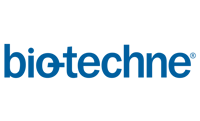Improving Cognitive and Gait Control in Parkinson’s with Vagus Nerve Stimulation

In this webinar, we will summarise the current literature on non-invasive VNS in Parkinson’s disease and discuss preliminary findings of its therapeutic potential with an emphasis on its efficacy in improving cognitive and gait control in people with Parkinson’s.

Watch On-Demand!
Webinar Summary
Although pharmacological intervention is the current gold standard treatment for many neurodegenerative and neuropsychiatric disorders, they carry many unwanted side effects.
Non-pharmacological alternatives such as electrical stimulation – used mostly as an adjunct therapy – has gained recent interest. Vagus nerve stimulation (VNS) is a neuromodulation technique that impacts multiple neurotransmitter systems. VNS involves an invasive surgical implantation of a generator subcutaneously providing direct electrical stimulation of the cervical vagus nerve. VNS is currently an approved adjunct treatment for drug-resistant epilepsy and in patients with treatment-resistant depression. However, the effects VNS exerts may also be beneficial for other neurological disorders.
Recently, non-invasive VNS devices have been developed with the aim of stimulating the vagus nerve transcutaneously, significantly reducing the risk associated with the implantable device.
In this webinar, we will summarise the current literature on non-invasive VNS in Parkinson’s disease and discuss preliminary findings of its therapeutic potential with an emphasis on its efficacy in improving cognitive and gait control in people with Parkinson’s.
Watch this webinar, to discover:
- The neural mechanisms of non-invasive VNS.
- How non-invasive VNS may mitigate gait problems in people with Parkinson’s.
- How non-invasive VNS may improve other non-motor symptoms of PD such as reduced neuroinflammation, gastroparesis and fatigue.
Speaker Information:

Research Associate
Brain and Movement Research Group at
Newcastle University
Sponsored By:




